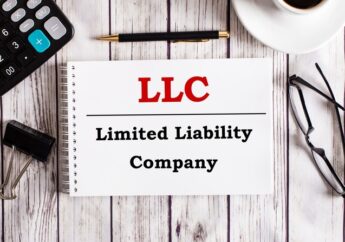How To Apply For Employment And Licensing With A Felony Record In California
by Debamalya Mukherjee Legal 16 October 2023

A felony record in California is not an excuse to give up on your dreams of securing employment or obtaining a professional license. Although having a criminal record can make the process more challenging, there are still options available for individuals with felonies to apply for jobs and licenses in California.
If you have a felony record in California, it’s essential to understand your rights and what is required of you when applying for employment or licensing in California.
In this guide, we will help you navigate employment and licensing application processes in California. We will also provide tips and resources on how to apply for employment and licensing in California and discuss the laws and regulations in place to protect ex-felons from discrimination.
Navigating Employment and Licensing with a Felony Record in California

When you apply for employment and licensing in California, you must disclose any felony convictions on your record. Failure to disclose this information can result in immediate disqualification from the application process or potential termination if discovered later. Take note that having a felony record does not automatically disqualify you from obtaining employment or licensing. You are protected by various laws and regulations that prohibit employers and licensing agencies from discriminating against individuals with criminal records.
1. Ban the Box
One of these laws is known as “Ban the Box,” which went into effect on January 1, 2018. This law prohibits employers from asking about your criminal record on job applications or during the initial stages of the hiring process. It also prevents employers from considering your criminal history until after a conditional job offer has been made.
This law aims to provide equal opportunities for ex-offenders and give you a chance to showcase your skills and qualifications before being judged based on your criminal record. However, certain types of jobs are exempt from this law, such as positions that require a background check by law or involve working with vulnerable populations.
2. Fair Chance Act
Starting from October 1, 2023, the new Fair Chance Act regulations in California prohibit employers with five or more employees from asking about an applicant’s criminal history on job applications. It also includes public agencies, private businesses, and non-profit organizations.
This law also requires employers to conduct an individualized assessment of each candidate and consider factors such as the nature and severity of the offense, time passed since the conviction, and any evidence of rehabilitation.
Additionally, California state law prohibits employers from denying employment solely based on a felony conviction, unless the offense is relevant to the job in question.
3. License Denial or Revocation Protection
Individuals with felony convictions also have specific protections in place when it comes to obtaining professional licenses. Under California law, licensing agencies cannot deny a license solely based on your criminal record unless it is directly related to the duties and responsibilities of the position. This means that the agency must consider factors such as your rehabilitation, evidence of good conduct since the conviction, and any other relevant information before making a decision.
Furthermore, if you already hold a professional license and are facing revocation due to your felony record in California, they have the right to request a hearing to demonstrate your rehabilitation and fitness for the job.
Steps to Take When Applying for Employment or Licensing
Now that you understand your rights as an ex-offender, here are some steps to follow when applying for employment or licensing in California:
A. Research companies and licensing agencies
Before you submit any job applications, conduct thorough research on potential employers and licensing agencies. This research will help you determine their specific policies and guidelines when hiring individuals with criminal records. If you are well informed about their stance on this matter, you can better prepare yourself and tailor your application accordingly. Learning how long felonies stay on record is crucial, as it can significantly influence your job search.
B. Be honest about your felony record
While it’s tempting to omit your criminal record, it is essential to be honest and transparent throughout the application process. Employers conduct background checks to ensure the safety and security of their workplace and employees. If a background check reveals a criminal history that you did not disclose, it will likely result in your application being rejected, as it raises concerns about your integrity and trustworthiness. By being upfront about your past and demonstrating personal growth and rehabilitation, you can present a more comprehensive and compelling case for consideration.
C. Prepare an explanation
During interviews or on written applications, be prepared to explain your felony record in a thoughtful and honest manner. Take the opportunity to showcase your personal growth and transformation since then. Also, highlight the rehabilitation efforts and significant accomplishments you have achieved post-conviction. By providing specific details and examples, you can effectively demonstrate the positive changes you have made and how they have shaped your character and trajectory.
D. Seek legal assistance
If you encounter any form of discrimination or unfair treatment during the application process, assert your rights and seek legal assistance. This will protect you from potential violations and ensure that you are treated fairly and equally as other candidates. You can also consult with a lawyer who specializes in employment or licensing laws to advise you on your specific situation and provide guidance on how to navigate the process successfully.
Related: How To Pass An Employment Background Check
Understanding the Impact of a Felony Record
Having a felony record in California can impact your life in many ways. You may find it difficult to secure employment, obtain a professional license, or even find housing. It is essential to understand the consequences of a felony conviction and take proactive steps towards rehabilitation and reintegration into society.
1. Rehabilitation Programs
California offers various rehabilitation programs for ex-offenders, such as job training, education programs, and counseling services. These programs can help individuals develop skills and qualifications that improve their chances of finding employment and provide the necessary support for a successful reentry into society.
2. Expungement
In some cases, individuals may be eligible for expungement of felony records, which is a process that clears their criminal record. This means that when applying for jobs or licensing, individuals do not have to disclose their felony conviction unless asked about it directly. Expungement requirements vary depending on the severity of the offense, time passed since the conviction, and individual circumstances.
3. Community Support
Finally, it is crucial for individuals with felony records to have a strong support system in their community. This can include finding a mentor, participating in support groups, or connecting with other ex-offenders who have successfully reintegrated into society. Having a supportive network can make all the difference in overcoming challenges and achieving success after a felony conviction. Felony conviction reporting time may vary by state, so it is essential to research the specific laws and regulations in your state.
Licensing with a Felony Record in California
Obtaining a professional license with a felony record in California can be challenging, but it is not impossible. As mentioned earlier, California has laws in place to protect individuals with criminal records from discrimination when seeking licenses.
If you are applying for a professional license in California and have a felony conviction on your record, here are some steps you can take:
A. Review the licensing requirements
Before applying for a professional license, review the specific requirements for your desired occupation. Some professions may have stricter regulations regarding criminal records than others.
B. Be upfront about your felony record
As with employment applications, it is crucial to be honest about your criminal history when applying for a professional license. You should also mention the Felony conviction record duration to ensure that there are no misunderstandings or discrepancies. Omitting this information or providing false information can result in your application being rejected.
C. Provide evidence of rehabilitation and good conduct
When applying for a professional license, it is essential to demonstrate your rehabilitation and good conduct since the conviction. This can include letters of recommendation, certificates of completion from rehabilitation programs, and any other relevant information that showcases your character and qualifications.
D. Attend a hearing if necessary
If you are facing license revocation due to your felony conviction, you have the right to attend a hearing and present evidence of your rehabilitation and good conduct. It is crucial to seek legal assistance in this situation.
Remember, having a felony record does not automatically disqualify you from obtaining a professional license in California. With honesty, perseverance, and determination to turn your life around, you can overcome any obstacles and achieve your career goals.
How Do Criminal Records Affect Professional Licenses in California?
In California, having a criminal record does not automatically disqualify individuals from obtaining professional licenses. However, certain convictions may impact an individual’s eligibility for a specific license. It is essential to understand the potential consequences of your criminal history and how it may affect your ability to obtain or maintain a professional license.
1. Crimes Related to the Licensed Occupation
If you have been convicted of a crime directly related to the occupation you are seeking a license for, this may impact your eligibility. For example, if you have a felony drug conviction and are applying for a pharmacy license, it is possible that your application will be denied.
2. Crimes Involving Moral Turpitude
Crimes involving moral turpitude (CIMTs) are those that involve dishonesty, fraud, or intent to harm others. These types of convictions can significantly impact an individual’s ability to obtain a professional license in California.
3. Time Passed Since Conviction
In some cases, the amount of time that has passed since the conviction may play a role in determining eligibility for a professional license. For example, if you have been convicted of a CIMT, the licensing board will consider the time that has passed since the conviction, any rehabilitation efforts, and your current conduct before making a decision. Take note that Felony criminal history lifespan varies per state so check with the specific licensing board for their requirements.
4. Rehabilitation Efforts
As mentioned earlier, demonstrating rehabilitation and good conduct is crucial when applying for a professional license with a criminal record. This can include completing rehabilitation programs, seeking counseling or therapy, and maintaining a clean record since the conviction.
Licenses That Are Automatically Denied Due to Felony Convictions

There are certain professions in California that automatically deny license applications from individuals with felony convictions.
These include:
- Nursing (unless the individual has completed a diversion program)
- Physician and Surgeon
- Social Worker
- Dental Hygienist
- Registered Health Information Technician
It is essential to research the specific requirements for your desired profession before applying for a license, as these regulations may change over time. If you have a felony conviction and are considering pursuing a career in one of these fields, it is crucial to seek legal assistance before submitting your application.
Wrapping Up
In conclusion, obtaining a professional license in California with a felony conviction is achievable. The state recognizes the potential of individuals to reform and reintegrate into society. As long as you are honest about your criminal past, provide proof of rehabilitation, and understand the specific licensing requirements for your desired profession, you can overcome any challenges and achieve your career goals.
Strong community support also plays a key role in overcoming challenges. Every journey has its hurdles, and the path to professional licensing with a felony record is no exception. Embrace these challenges as opportunities for growth and remember that your past does not define your future. Remember, having a felony record does not define you or limit your potential for success. With determination and perseverance, you can build a successful future and thrive in your chosen profession.
Read Also:







































































































